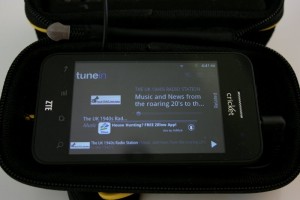 (Source: RCI Action)
(Source: RCI Action)
April 25, 2012:
Facing the reality of job cuts in any workplace is hard enough. When you’re an employee at Radio Canada International – it’s more than a job. It’s more than just a job loss.
Most of us have worked several decades for RCI. It may be an under appreciated service in Canada. But in the last few weeks, since the April 4 announcement that we would be cut by 80% and stop being a radio station, listeners around the world have rallied to our cause to stop the cuts. They have also told us how much they appreciate what we do, and are astonished that our national public radio and television broadcaster CBC/Radio-Canada would hit us with such a huge budget cut, much more then any other service under their control.
Strangely, even when we say an 80% per cent budget cut, it sounds sort of theoretical. When the letter is given to you that you no longer have a job, that your decades of service to Canada’s Voice to the World are redundant, well, that’s something else.
Today that happened to most of us.
About 15 permanent staff have been told they still have a job, 30 have been told they don’t. Three contractual webmasters will remain, but about 10 to 20 contractual employees (researchers, interviewers, hosts) will lose their jobs. Another 10 or 20 people who fill in for staff will have little or no work.
More importantly to us RCI has been almost made to disappear, no more radio programs, just a website, that is yet to be conceived, with little support. How much three employees in each of the five language services: English, French, Arabic, Mandarin and Spanish can do, even with the best of intentions, remains to be seen.
Management is saying we’ll be putting up text, photos, audio, maybe even video. But details are scarce. In fact, that’s the most surprising thing of all. There’s little information on how the website will look or function, there’s no real lead up time to prepare it, we’ll all be busy doing are regular programming until June 24. Then the new website is supposed to be up and running and those of us left, will have to somehow magically make it work.
[…]Next week we are promised a blueprint of the new RCI. Today it’s hard to believe in that future.
I will be very interested to see the blueprint for RCI’s internet future. Frankly, it will need a strategy to delineate itself from the hundreds of thousands of well-established Internet media sources out there.







